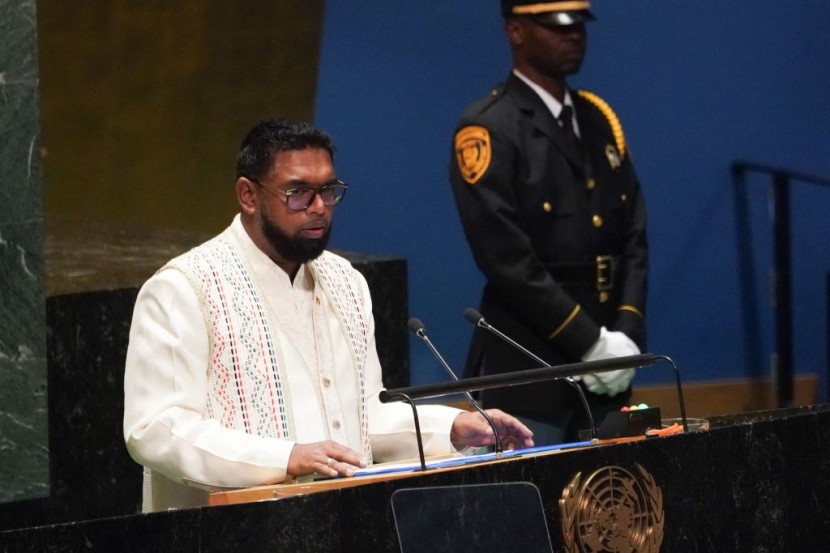The Biden administration is closely monitoring the escalating tensions between Venezuela and Guyana following Venezuelan President Nicolás Maduro's controversial move to annex a large portion of Guyanese territory.
This development comes after a Venezuelan referendum supported the annexation of a potentially oil-rich area belonging to Guyana, a South American nation bordering the Caribbean, as per Mail Online.
Venezuela's Arrests Prompt Guyana to Issue High Alert

Guyana, under President Irfaan Ali, has sought help from the United Nations and the United States, voicing grave concerns about Venezuela's aggressive stance. President Ali has alerted international leaders about the dangerous moves by President Maduro, who intends to create a new Venezuelan state within Guyanese borders.
Maduro's recent declaration includes a series of measures to formalize the annexation following the referendum. He has proposed the establishment of 'Guayana-Esequiba' as a new state, offering Venezuelan national ID cards to its English-speaking residents.
Additionally, Maduro has directed national companies to start mining and oil extraction operations in the region and called for the formation of a special military unit, raising alarms internationally and prompting Brazil to deploy armored vehicles to its border.
The Venezuelan leader also presented a revised national map featuring an enlarged Venezuela, incorporating the Essequibo region, and ordered its circulation in educational and public institutions.
Venezuela's claim to the Essequibo region dates back to its independence from Spain and has been a long-standing dispute with Guyana. The International Court of Justice (ICJ) is currently arbitrating this dispute, but Maduro has challenged the court's authority, asking Venezuelans to take matters into their own hands.
Despite low voter turnout and skepticism about the legitimacy of the referendum, the Venezuelan government claims a 95% vote in favor of annexing the Essequibo region. This move is seen by analysts as Maduro's attempt to distract from domestic crises and garner support ahead of the 2024 presidential elections, according to The Guardian.
Guyana's Call for International Support
Venezuela's attorney general issued arrest warrants for several opposition leaders, signaling a hardline approach ahead of next year's elections. Phil Gunson, an analyst at the International Crisis Group, notes this as a typical strategy of the Chavistas, who are choosing to advance aggressively rather than retreat and reform.
President Ali has responded by placing the Guyana Defence Force on high alert, asserting that Venezuela's actions pose a direct threat to Guyana's territorial integrity and sovereignty. He has also accused Venezuela of defying the ICJ, which recently ordered Venezuela not to take any action that might affect the disputed territory.
Guyana is now seeking support from the Caribbean community, the United States, and other allies while presenting its case to the UN Security Council. President Ali reassured investors, emphasizing Guyana's commitment to the rule of law and democracy.
Meanwhile, the White House, through National Security Council spokesman John Kirby, expressed deep concern over the rising tensions, urging both nations to avoid any violence or conflict. White House Press Secretary Karine Jean-Pierre confirmed President Joe Biden's awareness of the situation.
The dispute has gained international attention, especially since ExxonMobil's discovery of oil in the region in 2015. The ICJ has urged Venezuela to refrain from actions affecting the disputed territory but did not grant Guyana's request for urgent intervention. The decision of the UN's top court is emphasized as crucial to be respected by all involved parties, France24 reported.








